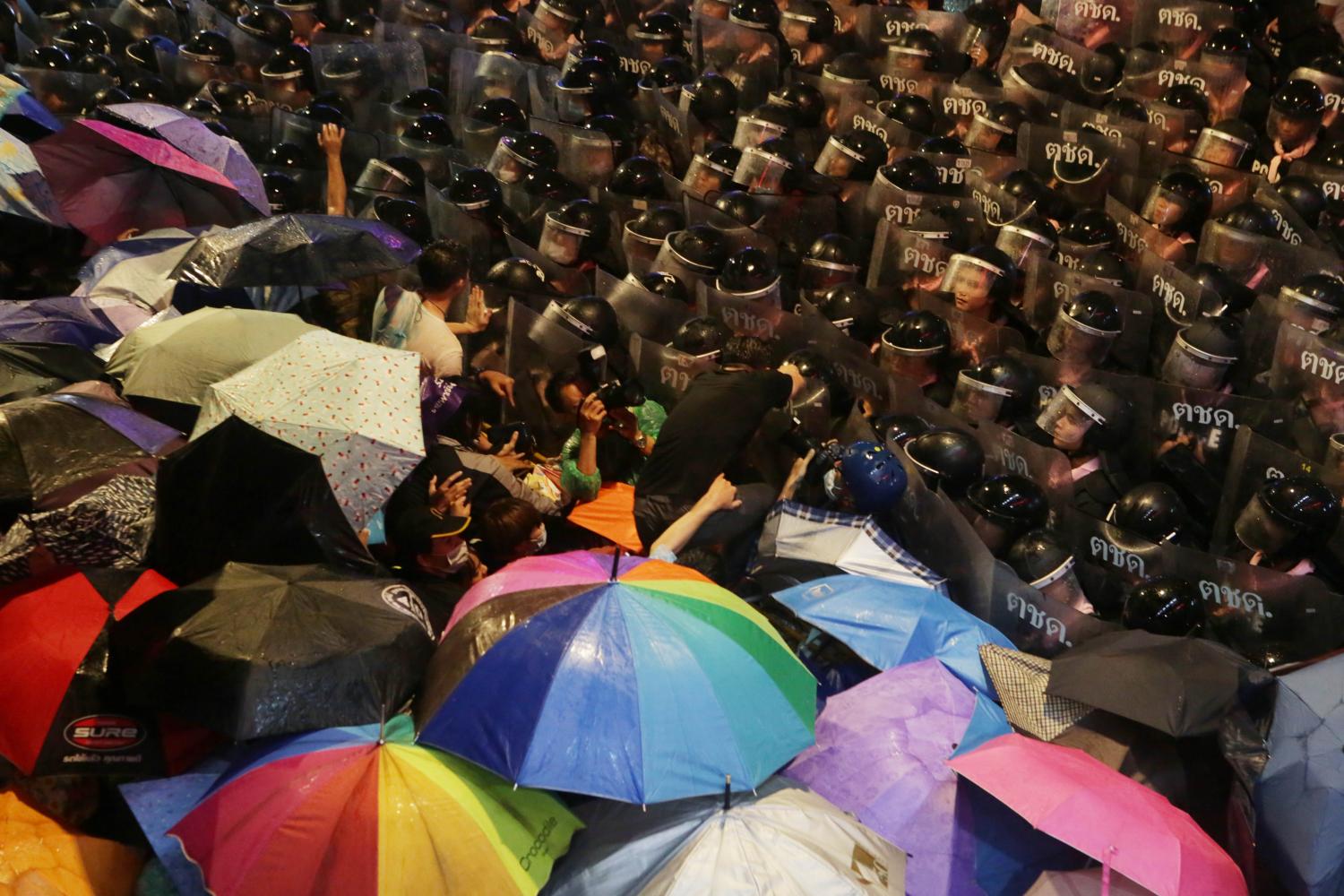
Hong Kong students have pledged support for the pro-democracy movement in Thailand after the recent wave of anti-government protests has rocked the capital for over a week.
Demonstrators are seeking the ouster of Prime Minister Prayut Chan-o-cha, the former coup leader who was reinstalled after a controversial election last year. They are also calling for democratic charter amendment and monarchy reform.
Anti-government rallies are sparking an outcry abroad. On Monday, Hong Kong activists gathered at the Thai consulate in the city to show solidarity with their counterparts in Thailand. Joshua Wong, one of the leaders of Hong Kong's pro-democracy movement, was among them. Others are following suit in the UK, US, France and Japan.
Angel Woo, a student at the Chinese University of Hong Kong (CUHK), said most Hong Kongers stand with their counterparts in the pro-democracy movement called the "Milk Tea Alliance", an online bloc of Hong Kong, Taiwan and Thailand standing in defiance of China.
"I think there are a lot of similarities [with us], such as [protesters using the messaging app] Telegram and signals for security," she told the Bangkok Post in an online interview.
Last Sunday, the Free Youth and the United Front for Thammasat and Demonstration (UFTD) groups asked social media followers to switch to communicating with them through Telegram following rumours the state would ask Facebook to take their pages down.
However, Ms Woo said Thai protesters stand a higher chance of success because they are challenging the state directly. Her people, by contrast, are facing the authorities in Hong Kong and China.
Hong Kong's protests took off in opposition to plans to pass an extradition bill last year. Opponents fear that it would give China greater influence over the semi-autonomous region. The bill was finally scrapped, but anti-government protests continued. In June, China, however, passed the national security law to outlaw secession, subversion, terrorism and foreign interference.
Student Leung Pak-hei said the imposition of the law and its harsh punishments [a maximum sentence of life imprisonment] is forcing the protest movement to "go underground". Some plan to leave their homeland, others adapt songs and slogans to put up their resistance.
He said anti-government protests in Thailand evoke what happened in Hong Kong last year.
"A lot of Hong Kong protesters wish Thais good luck because they have yet to achieve their five demands. They only managed to achieve one [the withdrawal of the extradition bill]. For the other four, the government refuse to concede," he said.
The remaining four include retracting the classification of protesters as rioters, granting an amnesty for arrested protesters, launching an independent inquiry into police brutality and providing universal suffrage.
Other students noted Thai demonstrators have taken inspiration from them, for example, in their use of memes and tactics.
In the wake of crackdowns, anti-government protests are now "rudderless" because core leaders face police arrests on a daily basis, for example, Arnon Nampa, Parit Chiwarak, and Panusaya Sithijirawattanakul.
Rally organisers said "we are all leaders", adopting the strategy of Hong Kong's pro-democracy movement inspired by Bruce Lee's "Be water" philosophy.